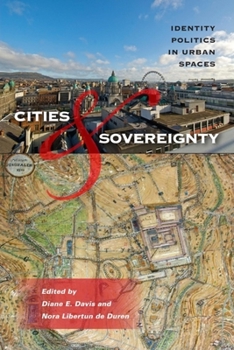Cities & Sovereignty: Identity Politics in Urban Spaces
Select Format
Select Condition 
Book Overview
Cities have long been associated with diversity and tolerance, but from Jerusalem to Belfast to the Basque Country, many of the most intractable conflicts of the past century have played out in urban spaces. The contributors to this interdisciplinary volume examine the interrelationships of ethnic, racial, religious, or other identity conflicts and larger battles over sovereignty and governance. Under what conditions do identity conflicts undermine the legitimacy and power of nation-states, empires, or urban authorities? Does the urban built environment play a role in remedying or exacerbating such conflicts? Employing comparative analysis, these case studies from the Middle East, Europe, and South and Southeast Asia advance our understanding of the origins and nature of urban conflict.





